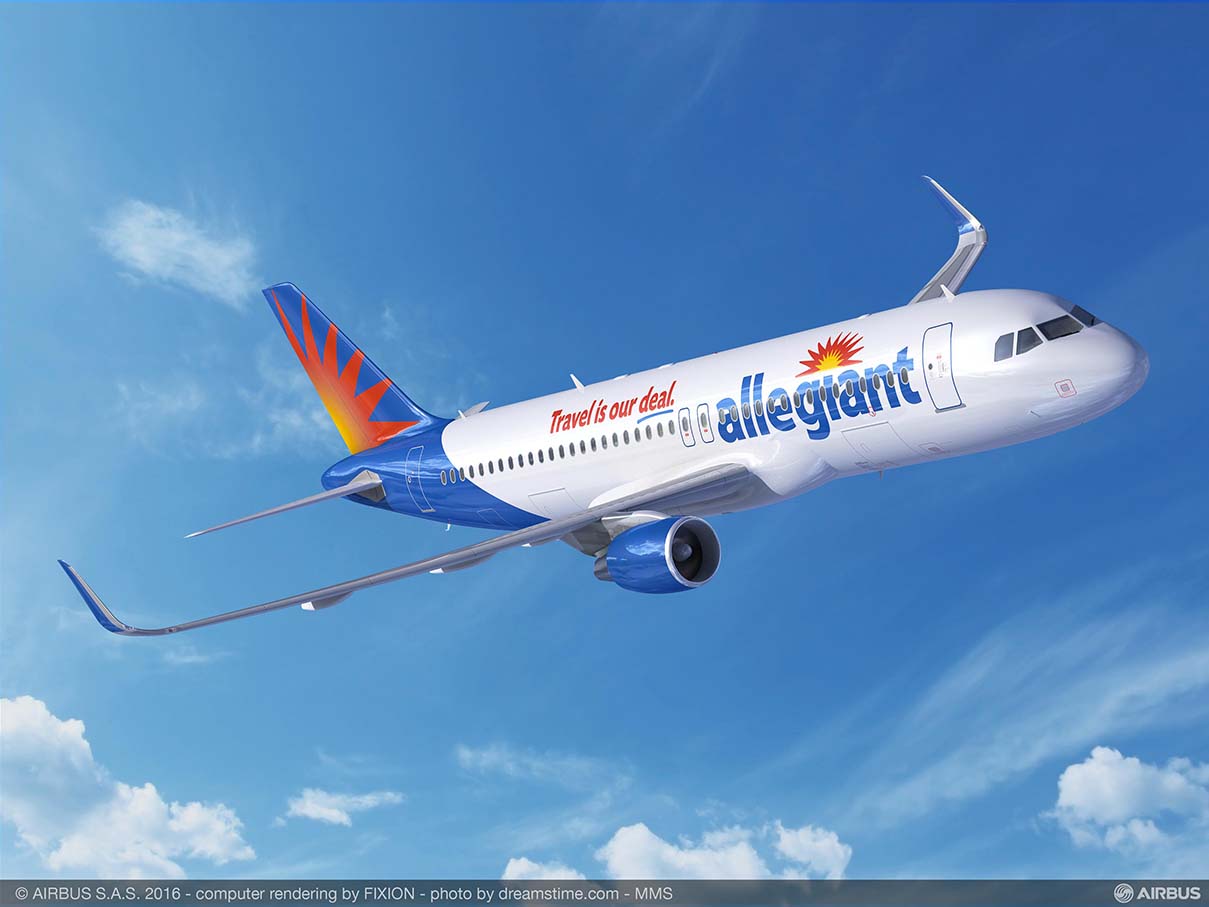Allegiant Travel Company has reported a 34.8% increase in total operating revenue to $2.3bn for the 12 months to end December 2022, compared to the prior year period, and a 25% rise over 2019 figures. Capacity increased by almost 14% during the year.
Income before tax was $74 million with net income dipping slightly over last year to $2.5 million. Operating costs, excluding fuel, rose 11.1% over 2019 levels to 7.20 cents.
Allegiant’s revenue per passenger per seat, TRASM, hit a record high for the fourth quarter at 14.03 cents, on scheduled service growth of 11.9%. CEO John Redmond confirmed that this “revenue strength coupled with better than expected cost performance and a more favourable fuel environment resulted in an adjusted operating margin of nearly 16 percent for the quarter”.
Allegiant’s total available liquidity was $1.4 billion at year end, which includes $1.0 billion in cash and investments, and $395 million in undrawn revolving credit facilities and PDP facilities. Total debt was $2.1 billion; net debt was $1.1 billion at year end.
Full-year 2022 capital expenditure (capex) amounted to $283 million, including $164 million for aircraft purchases, pre-delivery deposits, and other related costs, and $119 million in other airline capital expenditures. Full-year 2022 deferred heavy maintenance spend was $55 million. Looking ahead to 2023 and with its MAX deliveries coming on stream, Allegiant expects total capex for the airline in 2023 to be roughly $700 million, comprised of roughly $560 million related to aircraft, engines, PDPs and induction costs and the remaining $140 million coming from other airline capex. Deferred heavy maintenance costs for 2023 are expected to be at a similar level to 2022.
Taking a conservative approach to growth, Allegiant expects to grow capacity by approximately four percent in 2023, noting that the airline was expecting to take delivery of its MAX aircraft this year and into 2024. "2023 will be transformational for the company. We will begin taking delivery of our Boeing MAX 737 fleet during the fourth quarter, with deliveries picking up in earnest, early 2024. The operating efficiency and reliability of this aircraft will help bolster profits for many years to come,” he said.
Speaking on the Feb. 1 earnings call, Robert Neal, the new CFO of the company, stated that Allegiant expects to receive two 737 MAX 8200 aircraft during late fourth quarter of 2023 but noted that the airline was planned a conservative onboarding process for the aircraft and as such as “chosen not to plant ASM capacity for these aircraft until the early weeks of 2024”. Allegiant also plans to induct seven A320 aircraft into its operating fleet throughout the year – two of which entered service in January.
Although the delivery schedule with Boeing is still to be finalised for 2024, Allegiant expects to take two aircraft per month throughout the year. The aircraft are expected to be debt financed, according to Neal, who added that the terms proposed thus far were “attractive” and that he was “pleased with the level of financing support”.
In response to an analyst question on financing, Neal further noted that the company had “a line of sight to really fantastic terms on attractive financing”, adding appraisal values for the aircraft had increased between $3-3.5million since the order was placed, which he says “gives us a great ability to go out and raise financing and draw a lot of interest”.
Also on the earnings call, Redmond confirmed that Allegiant’s partnership with Viva Aeorbus is on track to secure all the necessary approvals “including category one status in Mexico in the first half of this year”.
Allegiant resumed share buybacks in 2022 and in the fourth quarter of the year bought back 377,529 shares at an average price of $78.94 a share, totalling $29.8 million. The board has also subsequently approved an increase in repurchase authority to $100 million.

